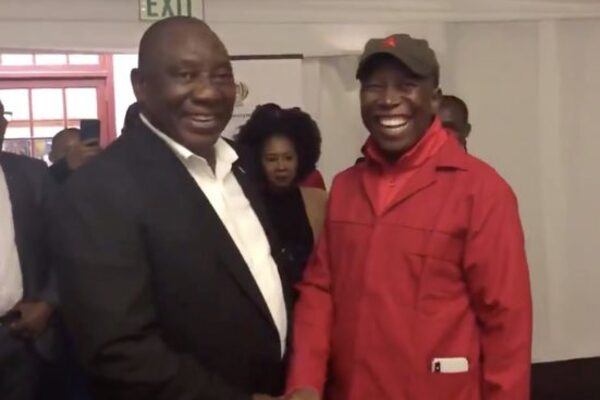Johannesburg – The political landscape of South Africa stands on the precipice of change as the African National Congress (ANC) grapples with an unprecedented decision at its national executive committee (NEC) meeting today. The party finds itself at a crossroads, torn between two potential paths that could reshape the country's government structure. Will they choose a Government of National Unity (GNU) with the Economic Freedom Fighters (EFF), or will they opt for a minority government in collaboration with the Democratic Alliance (DA), Inkatha Freedom Party (IFP), and other smaller parties?
This historic choice, which could redefine the power dynamics in South African politics, has captured the attention of the nation. The ANC, for the first time since the dawn of democracy in 1994, has lost its outright majority. Now, it faces the daunting task of navigating a political landscape that demands compromise and coalition-building.
In a departure from the status quo, the ANC's National Executive Committee (NEC) will convene on Thursday to deliberate on the two potential coalition partners. The proposed alliance with the DA, often regarded as the ANC's historic arch-nemesis, has surprised many observers. The DA, known for its liberal ideology and pro-market stance, has long been viewed as the ANC's primary opposition. However, political dynamics in South Africa have shifted, leading to this unexpected turn of events.
While the DA-ANC partnership has garnered tentative approval from financial markets, it has faced resistance from within ANC structures and its alliance partners. Critics argue that aligning with the DA would betray the party's historical roots and dilute its commitment to the principles of social justice. The ANC's alliance partners, such as the Congress of South African Trade Unions (COSATU) and the South African Communist Party (SACP), have voiced concerns about the potential consequences of such an alliance.
In a media briefing held on Wednesday, ANC spokesperson Mahlengi Bhengu-Motsiri provided the strongest indication yet that the ANC is leaning toward a coalition that includes the EFF. The EFF, a radical left-wing party known for its populist rhetoric and calls for economic transformation, has gained significant traction in recent years. EFF's leader, Julius Malema, has emerged as a formidable force in South African politics, rallying a loyal following among disenchanted youth and marginalized communities.
The prospect of an ANC-EFF coalition presents its own set of challenges and opportunities. Supporters argue that such an alliance would bring together two forces with a shared commitment to addressing economic inequality and social injustices. The EFF's policy proposals, including land expropriation without compensation and nationalization of key industries, resonate with the ANC's historical struggle against apartheid and its vision of a more equitable society.
However, forming a coalition with the EFF is not without risks. The party's radical stance and uncompromising rhetoric have drawn criticism from some quarters, who fear that the ANC's centrist position could be compromised. Additionally, the EFF's confrontational style of politics may pose challenges to the ANC's commitment to consensus-building and maintaining stability within the government.
The ANC's decision to explore coalition options reflects the changing political landscape in South Africa. The party's loss of an outright majority in the 2024 elections, for the first time in three decades, has forced it to adapt and seek innovative solutions to govern effectively. The emergence of smaller parties and the fragmentation of the political landscape have created a need for strategic partnerships and compromises.
As South Africa watches with bated breath, the ANC's choice will undoubtedly shape the trajectory of the country's political landscape. The decision carries immense significance not only for the ANC but also for the broader society. It represents a test of the party's ability to navigate complex political dynamics, reconcile historical rivalries, and prioritize the needs of the nation.
Only time will tell whether the ANC's historic choice will lead to a Government of National Unity that brings about meaningful change or if it will further deepen the divisions within the party and the country. South Africans eagerly await the outcome of the ANC's deliberations, as the nation holds its breath in anticipation of a new chapter in its political history.











